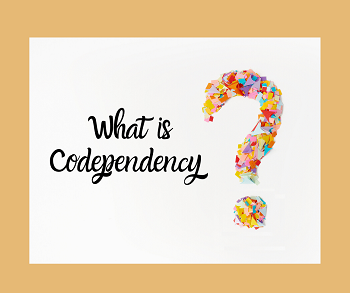Codependency is defined as a series of behaviors that involve or result from being physically, emotionally, or in any other way overfocused an another individual, usually at a detriment to your own wellbeing. There are several types of codependency. If you are codependent in your relationship, you enable the often irresponsible behavior of your partner. Sometimes, both of you can be codependent in different ways to each other.
Am I Codependent?
Common characteristics that may be found in co-dependents include low self-esteem and poor communication skills. Similarily, you do things for others even when it causes them distress or you tend to be very controlling and untrusting. In light of this, it is important to remember that no two codependent people will be the same.
Signs you may be codependent:
• Have difficulty identifying and labeling what you feel or what you need
• Do not recognize the unavailability of those people you are attracted to
• Value other’s approval and yet perceive yourself superior to others
• Fear abandonment as you don’t perceive yourself as lovable or worthwhile
• Are extremely loyal, sometimes staying in harmful situations too long
• Tend to be hypervigilant of other’s feelings and tend to take on other’s feelings
• Attempt to convince others of what to do, think or feel often giving unsolicited advice
• Become resentful when others don’t take their advice or don’t’ see “all they do for them”
• Use blame or shame on others to get their needs met
• Give expecting something in return and then when you don’t get it, explode
• Overcommit to what others want and often ignore your own needs
• Unable to set proper boundaries or even know what is an appropriate boundary
• Tendency to perfectionism and has a harsh inner critic
Additionally, codependency is usually learned from a young age.
Often a child grows up in a home or around people that exhibit codependent behaviors. Given this, they tend to have an overly critical or neglectful parent. Likewise it can occur when you have a parent that has a drug or alcohol addiction or a member has a mental illness in the family. While specific experiences that occur can also lead to codependent behaviors. Additionally, a child who experiences neglect, abandonment, abuse, and others can develop codependency.
Not everyone who has a codependent personality or exhibits these behaviors have necessarily suffered a traditionally recognized form of abuse. In some cases, you are raised to believe that you must always put others first or that you must serve others. Additionally, when you sacrifice your own needs you believe you are giving the ultimate display of loving another. Yet, not every perfectionist is codependent.
Parenting and Codependency
Since codependency is mostly a learned behavior, it is very likely that if you are a parent who shows signs of codependency, you will end up continuing the cycle with your own children. For example, if you are a codependent parent you may be what is often referred to as a “helicopter parent” trying to control everything. In fact, you are often very strict and have a hard time with anything that involves your children asserting any type of independence. Often, this tends to be worse if the child and codependent parent are of the same gender, though not always
Relationships and Codependency
Furthermore, when you are the codependent partner, you may come across early in relationships as very giving and devoted. Codependency becomes a problem when you give in determent to their own physical, mental, and emotional health. Then, it is not until you are very serious in a relationship that the negative sides of the behavior; i.e. controlling behavior, low self-esteem, neediness, become obvious.
Mental Illness and Codependency
While codependency is not necessary a specific and recognized mental illness. By the same token, it is closely related to several mental health conditions and can lead to a number of problems.
Mental health conditions that can be found in codependent individuals include:
• Anxiety
• Substance Use disorders
• Personality disorders
• Eating and behavior disorders
Final Thoughts
Struggling with codependency does not have to control your life. If you, or someone you care about exhibits signs of codependency, please reach out and find a therapist. One that can help you (or them) learn new behaviors that put personal needs ahead of those of others.
Reach out for help. We see clients online in California, in person in Roseville, CA and Fair Oaks, CA. Call today 916-426-2757
- What is it Like to be Married to Someone with ADHD? - January 22, 2026
- What Happens if You Don’t Treat Trauma? - January 15, 2026
- Couples Therapy for Separation - January 8, 2026

